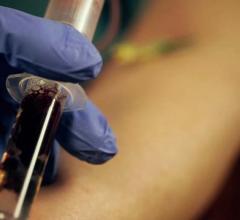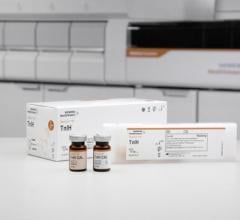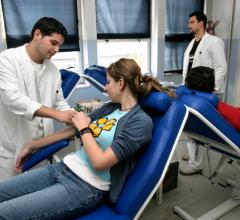August 28, 2008 - Just ahead of the expected release of clinical practice guidelines on Familial Hypercholesterolaemia (FH) by the influential National Institute for Clinical Excellence (NICE), Tepnel Life Sciences PLC today launched a DNA test for the early detection of FH, a genetic condition that predisposes individuals to high blood cholesterol levels and increased risk of cardiovascular disease.
The CE marked Elucigene FH20 kit, validated for in vitro diagnostic use, can rapidly determine the 20 genetic mutations most commonly found in a U.K. based population that are responsible for the disease. FH is a public health problem throughout the world with an estimated 10 million people affected, the majority of who will suffer an adverse coronary event before they are 65 years old. A common genetic disorder, the potentially lethal condition occurs in one of 500 people in Europe and North America. In the U.K. it is estimated that up to 110,000 people are affected with FH and 75 percent of these cases are undiagnosed.
The NICE consultation on a draft of guidelines for use by the National Health Service (NHS) in England and Wales is now being finalized with anticipated publication for August 2008. NICE is expected to recommend that all FH patients are offered a DNA test with subsequent cascade screening to be performed where the mutation is identified in a patient.
In a recent U.K. pilot study the test identified a 52 percent mutation detection rate in a sample of 110 FH heterozygous patients.
Currently late-stage clinical indications that suggest a patient is affected with FH are increased serum cholesterol concentration, tendon xanthomas and premature coronary heart disease. Treatment with statins to lower cholesterol levels is effective, but preventative treatment requires early diagnosis. Pre-symptomatic identification of FH individuals can ensure the health risks of high cholesterol are minimized through appropriate modifications to diet and lifestyle.
The company said early detection requires identification of genetic mutations of the low-density lipoprotein receptor (LDLR) gene, the apoloiprotein B-100 (Apo B) gene or the proprotein converatse subtilisin/kexin type 9 (PCSK9) gene, which are the cause of FH. Unlike other genetic diseases such as cystic fibrosis, where an affected patient must inherit two copies of the mutated gene, FH has an autosomal dominant pattern of inheritance and requires the affected patient to carry only one copy of the mutated gene.
While such DNA analysis and mutation detection is crucial for the definitive diagnosis of FH, the testing can be tedious and expensive due to the extremely heterogeneous nature of the LDLR gene, the company said.
Following the confirmation of mutation status of an FH patient using the rapid and cost-effective Elucigene FH20 assay, the new Tepnel test can be used to detect other previously undiagnosed family members with FH through cascade screening programs.
The test is not for use in diagnostic procedures in the U.S.
For more information: www.tepnel.com


 October 09, 2019
October 09, 2019 









